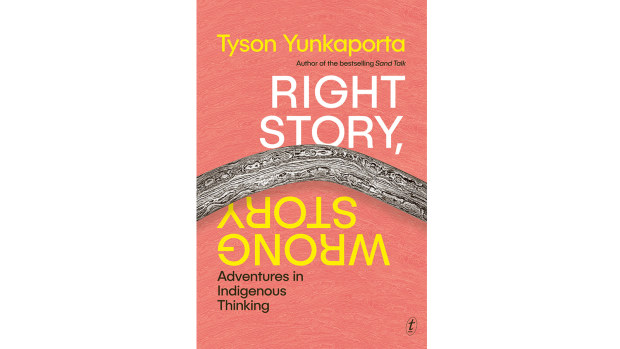Conspiracy theories are derailing the Yes vote
It doesn’t take a majority of voices to seed disinformation, he says. Just 20 per cent of a population circulating material can be enough to get the ideas into the orbits of the majority. They might hear them from family, friends or colleagues and once they’ve heard it, the idea takes root.
In the case of the Voice, he says, few voters are doing much research into the issue and so disinformation, which taps myriad fears (many of which are completely unrelated to the Voice), informs the decision-making disproportionately.
The materials being circulated are coming from within the Indigenous community as well as from outside. Yunkaporta notes that some well-respected elders are among the authors of this material, which includes ideas such as Indigenous people will have veto power over the prime minister or that they want to destroy Australian democracy.
Before the Voice, COVID-19 conspiracies galvanised parts of the population who are using the same kinds of arguments in relation to the referendum. This process of becoming radicalised by exposure to conspiracies he calls “black pilling” (a riff on the red pill-blue pill meme from The Matrix film, in which the red pill revealed reality and the blue pill maintained ignorance).
Yunkaporta recalls how the anti-vaccination narrative took hold in Indigenous communities, and points out that Indigenous people have been the subject of real conspiracies – such as when colonial powers decided the fate of whole populations – which makes people more open to conspiracy theories.

The way to counter this effect takes time, he says.
“Wrong story [disinformation] goes very fast and breeds exponentially, like weeds. Right story [truth] is like the large eucalypts along the river. There might be a lot of weeds, but those large eucalypts are doing a lot of work under the ground connecting things up. If we keep putting fire through the country, then gradually all the forest comes back.
“In this case, right story is to work collaboratively in research groups, doing rigorous peer-reviewed research.”
The Voice campaign is throwing up a lot of data, but it will be years before it can be analysed and any lessons drawn from it, Yunkaporta says.
“My small role in the Voice is just to track and record and keep the cautionary tale of how the disinformation campaigns around the Voice turned out and how strongly they manipulated people,” he says.
Right Story, Wrong Story: Adventures in Indigenous Thinking by Tyson Yunkaporta (Text).
This article has been archived for your research. The original version from The Australian Financial Review can be found here.


